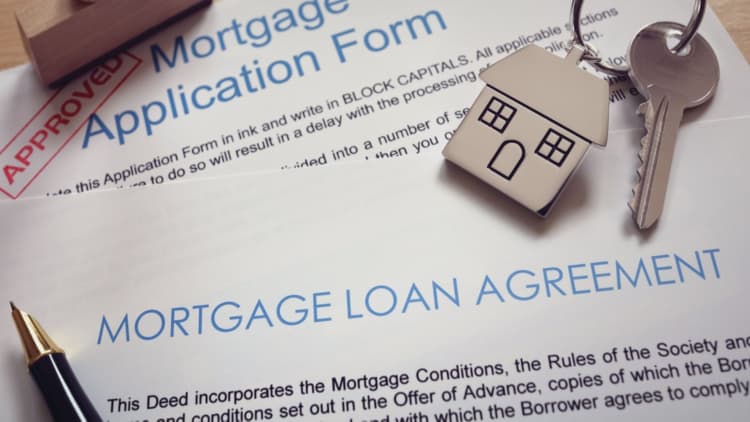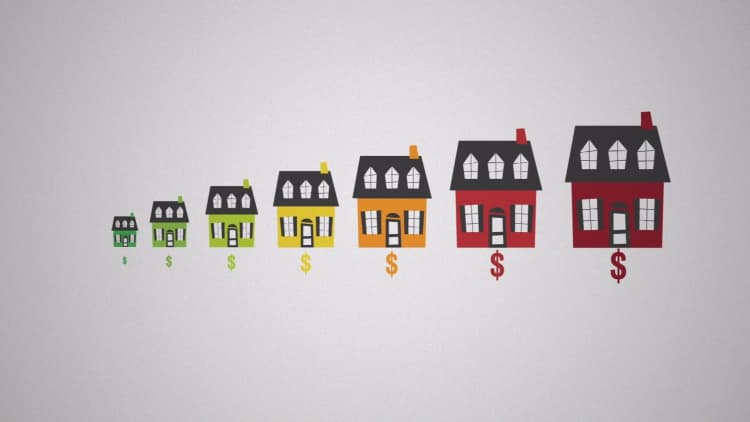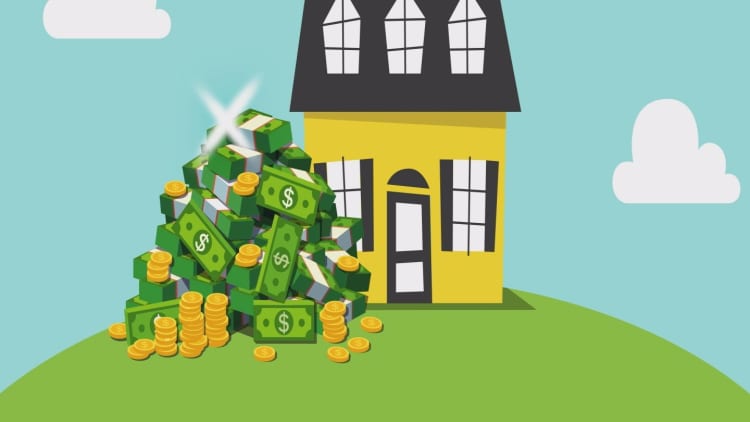
The latest numbers in housing aren't pretty at all.
Sales of both existing and newly built homes fell in June, the latter to the lowest level since last year. Prices continue to rise, but the gains are slowing. Mortgage applications to purchase both new and existing homes have been falling steadily, and mortgage rates are rising again. Single-family home construction also fell and was lower than June 2017.
In one of the nation's hottest metropolitan markets, Denver, Colorado, home sales fell 5.5 percent annually in June, even as prices hit an all-time high, according to a report by RE/MAX. Realtors there blame it squarely on a lack of homes for sale.
"Year-over-year prices have been climbing for more than two years now, which is great news for homeowners and sellers," said RE/MAX CEO Adam Contos. "The slower sales figures we're seeing are tied to inventory more than anything else."

But the slowdown is also tied to overheated prices. Even in the hottest markets, there is a limit to affordability, and that limit is clearly now being hit.
In pricey Southern California, sales of both new and existing homes fell sharply in June compared with a year ago, according to CoreLogic. Demand is still quite strong, and while prices continue to gain, more listings are showing price reductions.
"The market is strong, but I'm seeing a noticeable difference in the number of buyers that are looking at my listings each week," said David Fogg, a real estate agent based in Burbank, California. "We're still selling most every home, but now it is usually with just one or two offers over the 10 to 15 offers we were seeing earlier in the year."
'Anything-goes list-price strategy'
Fogg said he is also working very closely with his sellers now to make better and more realistic decisions about pricing.
"The anything-goes list-price strategy is no longer working. Buyers want to buy, but we're seeing fewer of them, and they are much more careful. Many properties are now not selling and/or coming down in price."
In a twist, a sales slowdown and more seller sanity could now actually boost the very slow recovery in homeownership. It ticked slightly higher again in the second quarter of this year, according to the U.S. Census.
"The rise in homeownership in the spring was consistent with the last few quarters, so while there appears to be a slowdown in the growth rate of home sales and prices, it has not slowed rising homeownership," said Sam Khater, chief economist at Freddie Mac.
Homeownership is still well below the peak of the housing boom in 2005 and a full percentage point below the 50-year average. This is because the largest generation, millennials, was delayed financially.
"This lag reflects the long-lasting scars from the Great Recession and the lopsided nature of this recovery. Despite years of continuous job growth and a slowly improving economy, it was only last year where we started to see an uptick in homeownership," added Khater.
Millennials finally began entering the housing market in huge numbers last year, only to find a critical shortage of homes for sale and fast-rising home prices. Bidding wars became the norm, and young potential buyers from coast to coast were often priced out.
"I thought I was at a higher price point where it would be a little bit easier for me to get a place without a lot of competition, but I've put down two offers so far and both times been beaten out by cash offers," said Brittany Storoz, a millennial who was house hunting in Denver, in an interview last winter. One of the homes she toured saw more than 100 people walk through it in just three days.
Millennials still buying
Homeownership is, however, gaining for younger households, especially those under 35. In the second quarter of this year, their homeownership rate hit the highest level in five years, according to the U.S. Census. This as homeownership fell for households aged 55 and older.
"This suggests that younger buyers are finding success despite the fact that they are more likely to have to adjust their home search in response to rising prices and mortgage rates," said Danielle Hale, chief economist for Realtor.com.
A recent survey by Realtor.com found 69 percent of recent closers ages 35-54 reported adjusting their home search in response to rising costs, while 77 percent of recent closers ages 18 to 34 reported the same.
There is, however, a price limit, and that is part of why existing home sales have been falling for three straight months. The other part is a lack of affordable homes for sale. Sales of homes priced below $250,000 were sharply lower in June compared with a year ago, while those priced from $250,000-$750,000 were essentially flat, according to the National Association of Realtors.
The inventory shortage is most critical at the lower end of the housing market for two reasons. First, homebuilders say they cannot afford to build lower-priced homes because of rising costs for labor and materials. Second, investors purchased millions of lower-end homes that went into foreclosure during the housing crisis and turned them into lucrative, single-family rentals. They continue to hold those homes or sell them to other investors.
WATCH: How to use your home as a source of cash



